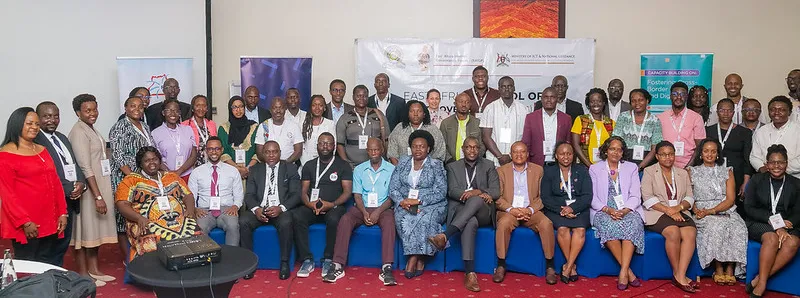By Conrad Keya
The 11th East African Internet Governance Forum (EAIGF) in Kampala concluded with a strong call for East African countries to harmonize their policies to achieve cohesion and digital transformation. The EAIGF, which brings together tech think tanks, experts, NGOs, and government officials, focuses on discussing emerging technologies, addressing the digital divide, and developing policies for proper internet governance in East African bloc member states.
Presentations revealed that countries are working independently to solve shared challenges, including low internet penetration, data protection, internet safety, and affordability of critical internet resources.
Ms. Rosemary Koech, the chairperson of Kenya’s Multistakeholder Advisory Group, emphasized that the EAC integration agenda must take technology as part and parcel of the integration.
Data Protection and Privacy
Data privacy emerged as a central topic, with member states’ isolated efforts to protect citizens’ data affecting sectors like education, healthcare and tourism. For instance, a Kenyan patient seeking treatment in Uganda must physically transport their medical data or undergo new tests, delaying care. A shared data platform could facilitate data sharing and improve healthcare provision across the region.
It is argued that a common policy guiding the legal sharing of biometric and personal data among East African Community (EAC) countries is crucial for seamless movement within the region, aligning with the EAC Common Market Protocol and the African Continental Free Trade Area (AfCFTA) goals of free movement of goods, capital, services and people.
AI Regulation
Artificial Intelligence (AI) regulation discussions highlighted Kenya’s leap of faith in AI regulation in the EAC region. Mutheu Khimulu, a cyber-security lawyer, noted, “Kenya is the only East African country with a national AI strategy.
Other countries should follow suit to establish guiding frameworks rather than strict regulations.” She added, “While the EU has the AI Act, we’re not ready to regulate, but we need frameworks to guide AI use.”
Kenya’s efforts to enact the Robotics and AI Society Bill 2023, despite some criticism, is a step in the right direction.
However, a regional approach to establishing a common policy would ensure uniformity in regulation, crucial for driving AI-led innovations serving the entire East African community. The EAC is encouraged to adopt a collaborative approach similar to the EU’s AI Act.
East African countries have also been urged to incorporate AI into their education systems. Cedric Otolo emphasised, “We need to focus on our education system so that young people can learn not only to consume but also to build AI systems.”
Right to Access Information
Recent months have seen increasing cases of social media restrictions in East Africa, contradicting the universal right to access information. Gbenga Sesan, the Executive Director Paradigm Initiative, criticized tech companies for prioritizing business over service: “Tech companies support impunity and violate the right to access information by complying with unlawful orders.”
A multi-sectoral, collective effort through regional policies is key to addressing this issue, which has led to prolonged social media blackouts in some countries. The East African region needs binding policies with service providers to prevent governments from curtailing information access while combating misinformation.
Members from the Africa Parliamentary Network on Internet Governance (APNIG), led by Tanzanian legislator Neema Lugangira, made a compelling appeal to internet stakeholders. They have urged tech stakeholders not to work in isolation, they have emphasized the critical importance of engaging legislators from the very beginning of the policy-making process.
This collaborative approach, they argued, is essential for developing and implementing progressive Internet governance policies across the East African region. By involving lawmakers early on, the APNIG believes that more effective and comprehensive policies can be achieved, fostering a more inclusive and robust digital landscape in East Africa.
The East African Legislative Assembly (EALA) was also been identified as a crucial legislative body for establishing legal and binding policies that encourage technological innovation, digital transformation and cohesion among East African communities.
Conrad Keya is the Director and Co-founder of Youth-Driven Solutions To Accountable Governance(YSAG) Kenya.
![]()




